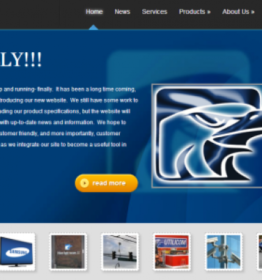SCO Says Microsoft Memo Is Legit
(Wired) The SCO Group confirmed Thursday that a memo published on open-source community blogs is legitimate, but that it is not the smoking gun that Linux advocates say it is. The memo, first published on the website of open-source advocate Eric Raymond, was presented as correspondence leaked by a whistleblower from within SCO that showed that Microsoft has invested up to $100 million in the company to squash the Linux operating system.
For the past year, SCO has been asserting that it is the rightful owner of the Unix operating system and its derivatives, including Linux. It has sued companies like IBM for allegedly misappropriating Unix code and infringing on its copyright — charges that IBM and Linux advocates ridicule. In addition, Linux supporters have suspected that Microsoft has been bankrolling SCO so that it can sue Linux out of existence. The memo was hailed as proof of this.
But SCO said the writer of the memo didn’t have his facts straight.
“The memo is the result of a misunderstanding by an outside consultant,” said Marc Modersitzki, SCO’s public relations manager. “Microsoft did not invest in SCO, and Microsoft did not orchestrate or participate in any investments in SCO.”
The memo, dated October 12, 2003, appears to be a message from Mike Anderer, of consulting firm S2, to Chris Sontag, vice president and general manager of SCOsource, SCO’s intellectual property division. According to the memo, Microsoft had invested $50 million dollars in SCO via venture capital firm BayStar Capital.
BayStar Capital is a private equity fund that makes direct investments in privately held and publicly traded companies. One of BayStar’s largest investors, according to BayStar (PDF), is Vulcan Capital, the private investment vehicle of Paul Allen. Allen co-founded Microsoft with Bill Gates, and is the second-largest Microsoft shareholder after Gates.
At the time the investment was announced last November, questions were raised over Microsoft’s possible participation in the investment.
But BayStar and SCO both denied any Microsoft involvement when the investment was announced.
The text of the memo also states that Microsoft supplied SCO with more than $30 million in other funding in 2003, partly through licensing fees.
“It was a misunderstanding by someone from outside SCO,” said Modersitzki. “Microsoft has not invested a penny into SCO.”
SCO has sued IBM for more than $5 billion in damages, charging that IBM moved Unix code to Linux. IBM denies wrongdoing and has countersued SCO. Technology firms Novell and Red Hat have brought their own suits against SCO. And SCO sued AutoZone and DaimlerChrysler on Wednesday, alleging violations of copyright and of a software licensing agreement.





















